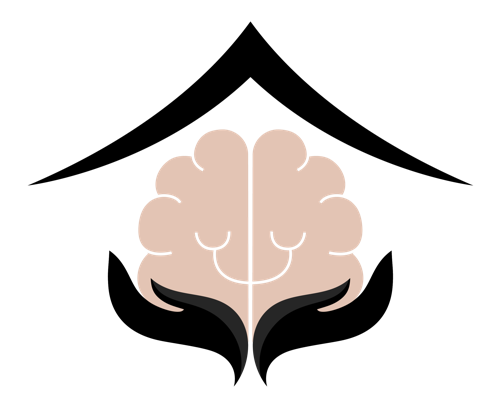Attention-Deficit/Hyperactivity Disorder (ADHD) is a neurodevelopmental disorder that affects children, adolescents, and adults worldwide. To accurately identify and manage ADHD, proper diagnosis is crucial. This blog aims to shed light on the significance of ADHD screening test in assessing symptoms and seeking a proper diagnosis.
Understanding ADHD
is characterized by persistent patterns of inattention, hyperactivity, and impulsivity that can significantly impact an individual’s daily functioning. It is important to recognize the different types of ADHD ADHD, including predominantly inattentive, predominantly hyperactive-impulsive, and combine presentation.
Individuals with ADHD often face challenges in various aspects of their lives, such as academics, social interactions, and personal relationships. It is estimate that around 5-10% of children and about 2-5% of adults worldwide have ADHD. Early identification and proper management can make a significant difference in their lives.
The Need for Screening Tests
ADHD screening tests play a vital role in identifying and diagnosing ADHD. They are design to evaluate an individual’s symptoms and assess the presence of ADHD-relate behaviors. These tests are not intend to provide a definitive diagnosis but serve as an initial step in determining whether further evaluation is need.
Screening tests for ADHD are essential because early detection allows for prompt intervention and support, improving long-term outcomes for individuals with ADHD. They provide an opportunity to identify symptoms and potential risk factors, enabling timely intervention strategies to be implementer.
Types of ADHD Screening Tests
Behavioral and Observational Assessments: These tests involve observing an individual’s behavior and interactions in various settings, such as home, school, or clinical environments. Behavioral checklists complete by parents, teachers, or caregivers can provide valuable insights into the individual’s daily functioning.
Rating Scales and Questionnaires: ADHD screening test rating scales and questionnaires are widely use as screening tools. They involve a series of questions that assess the presence and severity of ADHD symptoms. These questionnaires are typically complete by the individual, their parents, or teachers and help gather information about the individual’s behavior across different situations.
Cognitive Tests and Neuropsychological Evaluations: In some cases, healthcare professionals may use cognitive tests and neuropsychological evaluations to assess cognitive functioning, executive functioning, and attention abilities. These tests provide a comprehensive assessment of an individual’s cognitive strengths and weaknesses, aiding the diagnosis and treatment planning process.
Medical Examinations and Genetic Testing: Alongside behavior assessments, medical examinations are important to rule out any underlying medical conditions that might mimic or coexist with ADHD screening test symptoms. Additionally, genetic testing may be considerer in specific cases to identify genetic variations associate with ADHD.
While these screening tests can provide valuable insights, it is important to emphasize that a formal diagnosis can only be made by a qualifies healthcare professional after a comprehensive evaluation and consideration of multifare information.
It is worth noting that online ADHD tests have gain popularity in recent years. These online ADHD tests, although easily accessible and convenient, should be approach with caution. While they can serve as a starting point for discussion, they should not replace a comprehensive evaluation by a healthcare professional. The accuracy and reliability of online ADHD tests may vary, and they should not be consider as definitive diagnostic tools.
The primary purpose of screening tests is to identify potential ADHD screening test symptoms and assess the need for further evaluation by a qualify healthcare professional. Seeking professional advice is crucial for an accurate diagnosis, as it involves careful consideration of an individual’s personal history, observation of behaviors, and collaboration with relevant specialists.
Next, we will delve deeper into the process of assessing ADHD symptoms and the crucial steps in seeking a proper diagnosis.
Assessing ADHD Symptoms
Assessing ADHD symptoms is a critical step in the diagnostic process. Healthcare professionals rely on various methods to gather information and evaluate the presence and severity of symptoms. ADHD screening tests are valuable tools in this assessment, providing essential insights for an accurate diagnosis.
During the evaluation, healthcare professionals consider the primary symptoms of ADHD, including inattention, impulsivity, and hyperactivity. Screening tests help assess the frequency and intensity of these symptoms across different settings, such as home, school, and work environments.
ADHD screening tests assist in differentiating ADHD from other conditions that might present similar symptoms, such as anxiety disorders or learning disabilities. The comprehensive nature of these tests allows for a more accurate differential diagnosis, leading to appropriate treatment and support.
It is crucial to note that while screening tests capture important information, they are not definitive diagnostic tools. They serve as a preliminary step to identify potential ADHD symptoms, but a qualifies healthcare professional must conduct a comprehensive evaluation to make an accurate diagnosis.
Seeking a Proper Diagnosis
Seeking a proper diagnosis for ADHD involves multidimensional assessments and collaboration with healthcare professionals. Once an ADHD screening test indicates the likelihood of ADHD, it is essential to consult a qualify healthcare provider who specializes in ADHD or neurodevelopmental disorders.
The initial evaluation typically involves obtaining a detail medical history, including information about the individual’s development, academic performance, and behavioral patterns. This helps in understanding the context and progression of symptoms. Healthcare professionals often rely on input from parents, teachers, or other caregivers to gather additional information about the individual’s behavior in different settings.
Collaboration with specialists, such as psychologists or psychiatrists, might be necessary for a comprehensive evaluation. These professionals employ standardize assessments, interviews, and observations to gather information about various aspects of an individual’s functioning. They consider the impact of ADHD symptoms on academic performance, social relationships, and overall quality of life.
It is important to recognize that seeking a proper diagnosis for ADHD is not a one-size-fits-all approach. Every individual is unique, and the diagnostic process should be tailor to their specific needs. A comprehensive evaluation ensures the accurate identification of ADHD symptoms and the formulation of an appropriate treatment plan.
Interpreting Test Results
Interpreting ADHD screening test results requires careful consideration and expertise. Healthcare professionals analyze the information gather through various assessments and screenings to make inform decisions regarding the diagnosis.
ADHD screening test provide insights into the frequency and severity of symptoms, identifying patterns of behavior and potential impairments. Professionals use these results as a basis for further investigation and decision-making. However, it is important to interpret the results in context, considering other factors. Such as the individual’s functioning, personal circumstances, and observe behaviors.
It is worth emphasizing that ADHD is a clinical diagnosis, and the evaluation process involves a comprehensive assessment. This means that ADHD screening test should be seen as tools that contribute to the diagnostic process but cannot solely determine the diagnosis.
Treatment and Support Options
Once an accurate diagnosis has been made, appropriate treatment and support options can be explore. ADHD is a complex condition that requires a comprehensive and individualize approach. Different treatment modalities, including medication, behavioral therapies. And educational interventions, can be consider base on the individual’s unique needs and circumstances.
Medication can be effective in managing ADHD screening test by improving attention, reducing impulsivity, and enhancing self-control. Behavioral therapies, such as cognitive-behavioral therapy (CBT). Can help individuals develop strategies to better cope with challenges and improve their functioning. Educational interventions, including classroom accommodations and support, can also play a significant role in the management of ADHD.
Additionally, support groups and educational resources can provide valuable information, guidance. And a sense of community for individuals with ADHD and their families. They offer a platform for sharing experiences, gaining insights, and accessing practical strategies for managing ADHD symptoms effectively.
Support and treatment options are not limite to traditional in-person interventions. Online resources and telehealth services have become increasingly accessible and offer convenient avenues for support and guidance.
It is important to note that while online ADHD test and resources can provide general information and support, they should not replace professional assessment and guidance. Online ADHD test can serve as a starting point for individuals. To recognize potential symptoms and seek proper evaluation from qualified healthcare providers.
By considering the strengths and limitations of various treatment options and support services, individuals with ADHD. And their families can make informed decisions and enhance their well-being.



